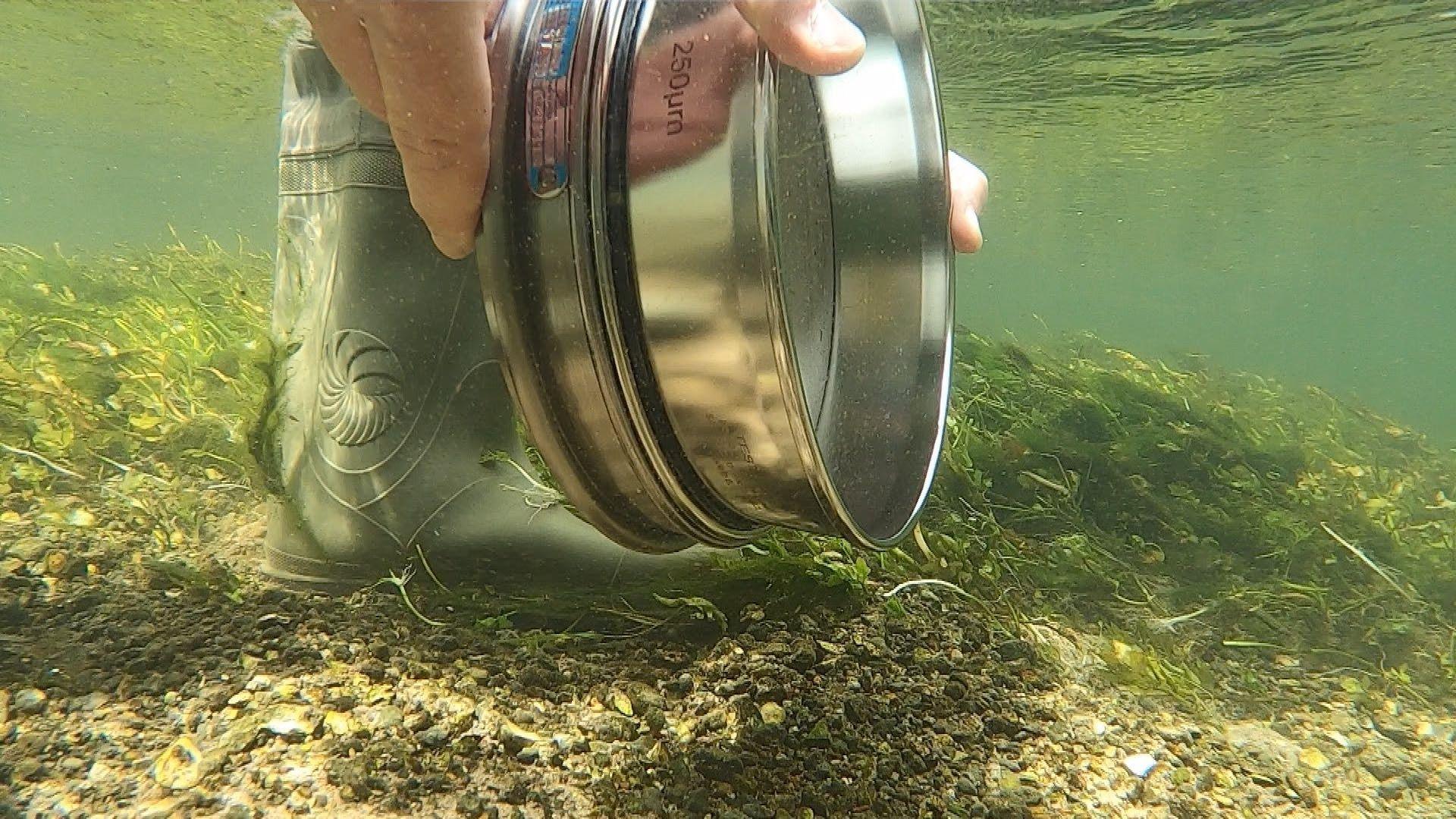Southern Water sorry after pellets pollute beach
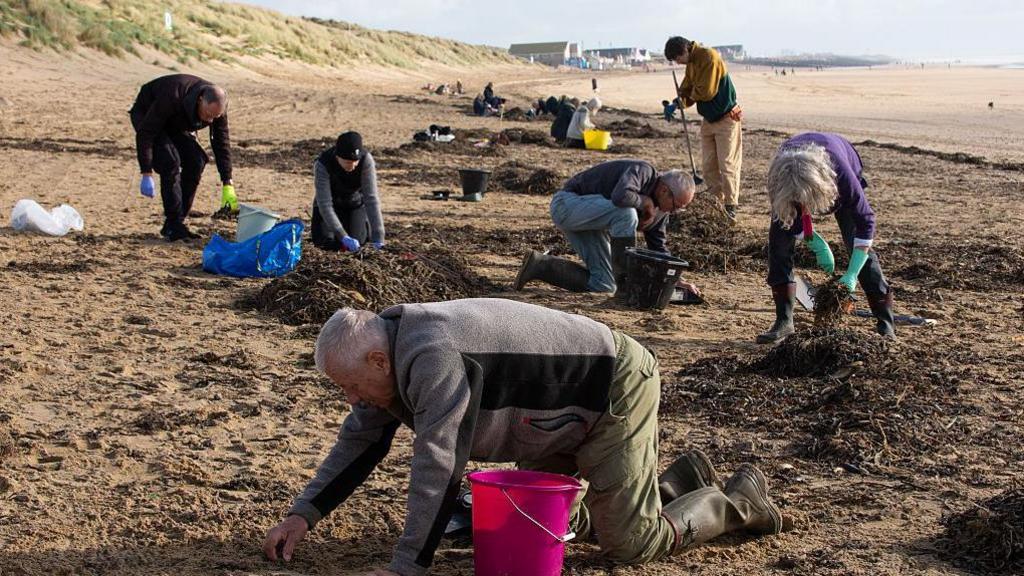
Volunteers cleaning up the pellets at Camber Sands have described it as "the worst single incident" they have encountered
- Published
Southern Water has said it is "highly likely" millions of plastic pellets that washed up on an East Sussex beach escaped from its wastewater treatment works.
Volunteers cleaning up the pellets at Camber Sands have described it as "the worst single incident" they have encountered.
The water company said it believed a filter failed at its Eastbourne wastewater site.
The Environment Agency said it would take "robust enforcement action where appropriate", while the government's water minister said she was "deeply disappointed".
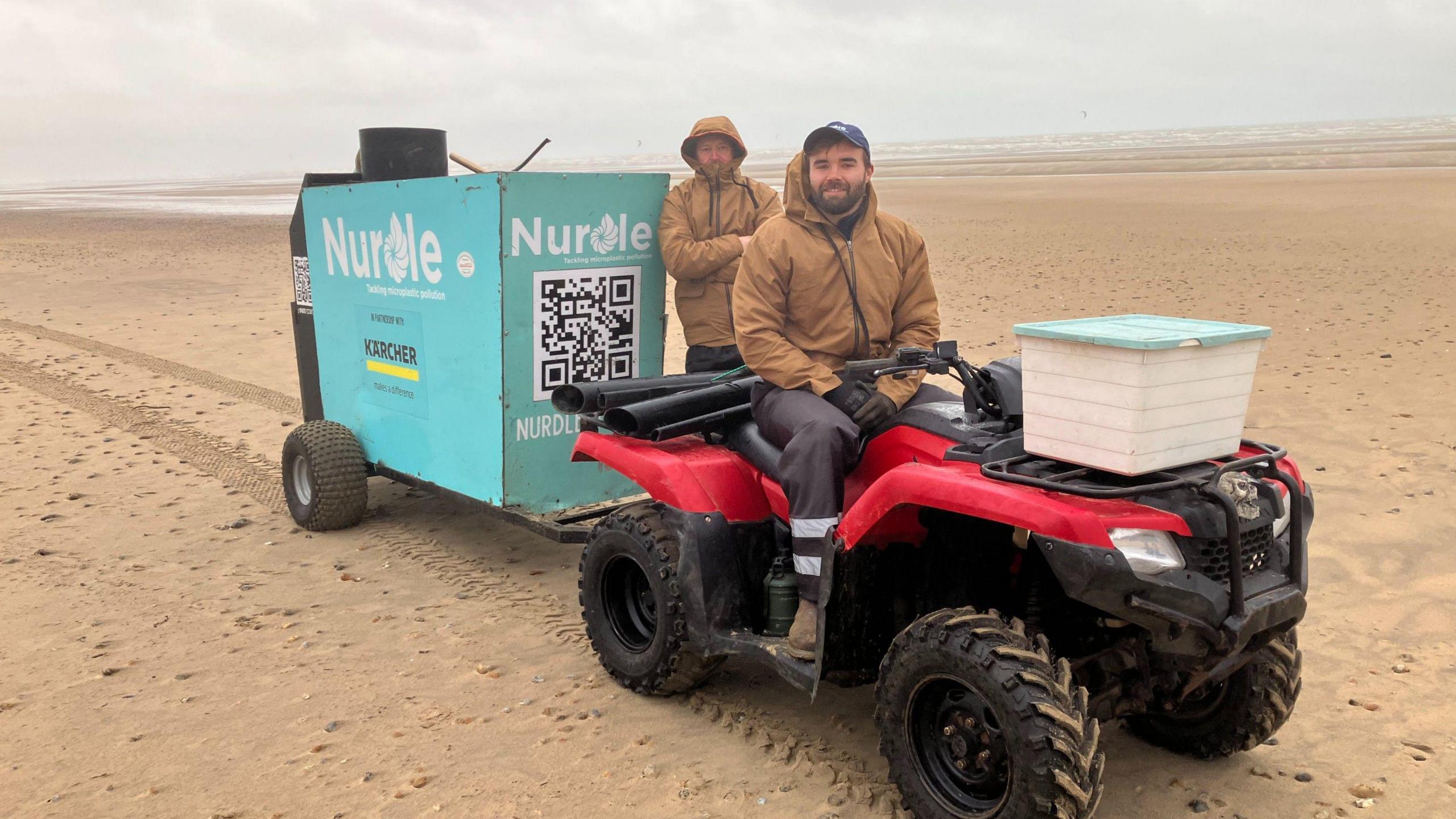
Josh Beech (on quad bike) and Dominic Manning have been using a prototype machine to vaccuum up the pellets
The clean-up operation is being led by Rother District Council, with help from the non-profit organisation Nurdle, which specialises in cleaning plastic pollution from beaches.
Founder Josh Beech said: "This is by far the worst spill incident we've ever seen. This is tonnes and tonnes of pollution on quite a small stretch of coastline.
"This beach has been hit by a couple of spills previously, but nothing on this scale."
He and Dominic Manning from the plastic pollution campaign group Strandliners said they were using a prototype machine to vacuum up the pellets without removing sand and other organic material.
"If they're ingested by marine life or birds they could cause them all sorts of problems, they've got toxins in them," said Mr Manning.
"When I came here on Thursday you could pick them up by the handful. These could be washing up anywhere along the coast of Sussex or even Kent."
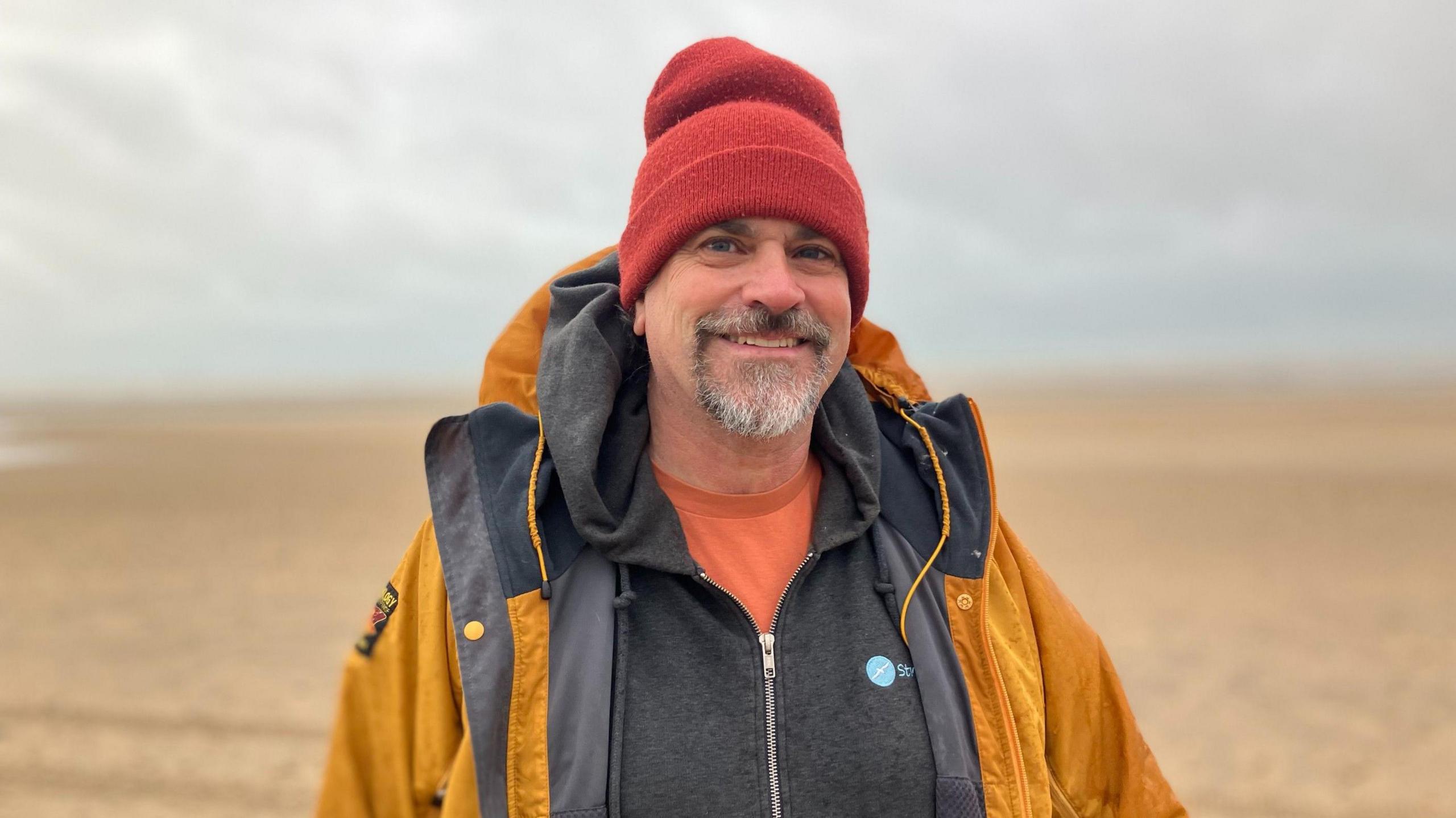
Dominic Manning says the pellets could be toxic for wildlife
Hastings and Rye MP Helena Dollimore visited the beach over the weekend and told BBC Radio Sussex it was "overwhelming" to see the "huge number of these beads".
"There's been a massive volunteer effort to remove as many as possible, but it's a race against time, more are coming in," she said.
A spokesman for Southern Water said: "We believe it is highly likely that the beads have come from our Eastbourne Wastewater Treatment Works.
"We've identified a failure of a screening filter which has apparently led to beads used in the treatment process being released into the sea during heavy rainfall. The screen should have prevented this occurring.
"We are very sorry this has happened and are doing everything possible to investigate and resolve the problem."
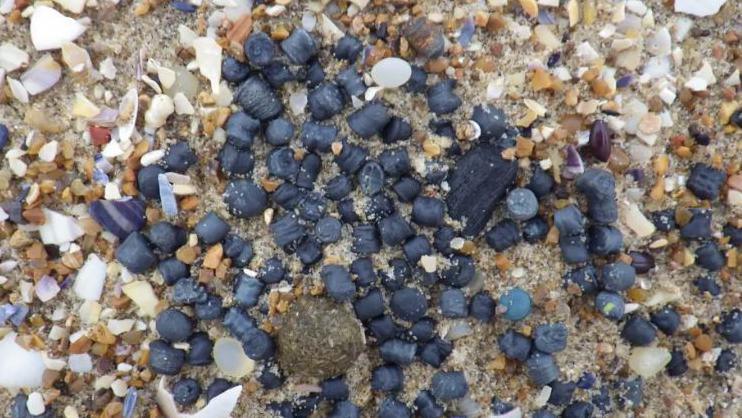
Southern Water said it was "highly likely" the beads came from the Eastbourne Wastewater Treatment Works
Water minister Emma Hardy said: "I am deeply disappointed about the plastic pollution incident affecting Camber Sands, East Sussex. It is right that Southern Water has taken responsibility.
"The immediate priority now needs to be addressing any environmental damage and minimising further impacts."
An Environment Agency spokesman added: "We acknowledge that Southern Water has admitted responsibility for the pollution incident.
"This is an active investigation and we will not hesitate to take robust enforcement action where appropriate."
'Large amounts'
On Monday, a Rother District Council spokesperson said: "Whilst every effort has been made to remove as many of the pellets initially deposited on the beach as we can, it has proven impossible to remove them all.
"We also expect further large amounts to be deposited in the coming weeks and months, and officers will continue to monitor the beach to plan for the ongoing removal."
The council has urged dog owners to keep them on leads and under close supervision while on the beach to stop them from potentially eating the pellets.
Meanwhile Hastings Borough Council said it had written to the chief executive of Southern Water about the incident, asking what is being done to monitor the situation and its effect on wildlife.
Follow BBC Sussex on Facebook, external, on X, external, and on Instagram, external. Send your story ideas to southeasttoday@bbc.co.uk , external or WhatsApp us on 08081 002250.
- Published9 November
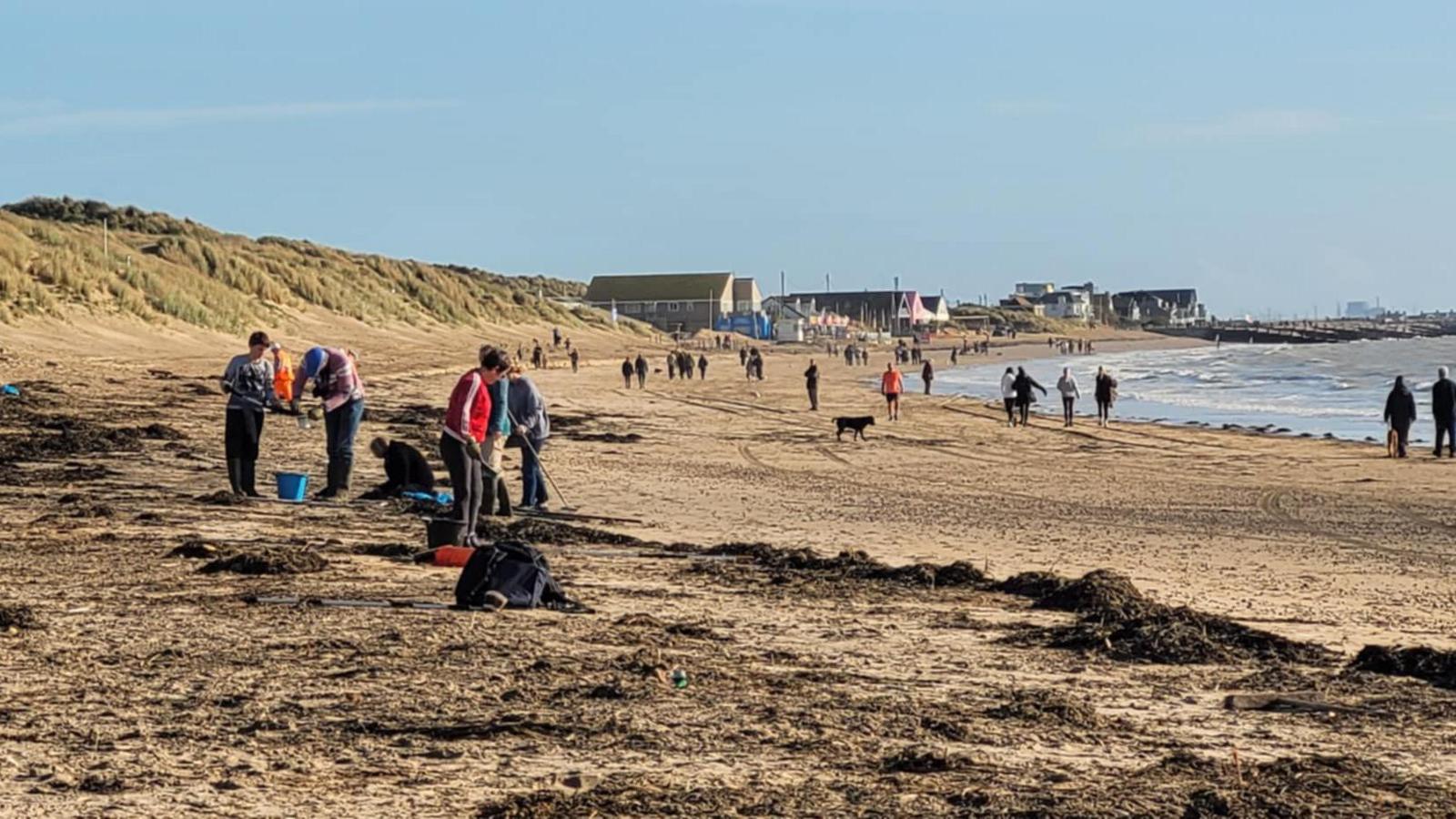
- Published31 October
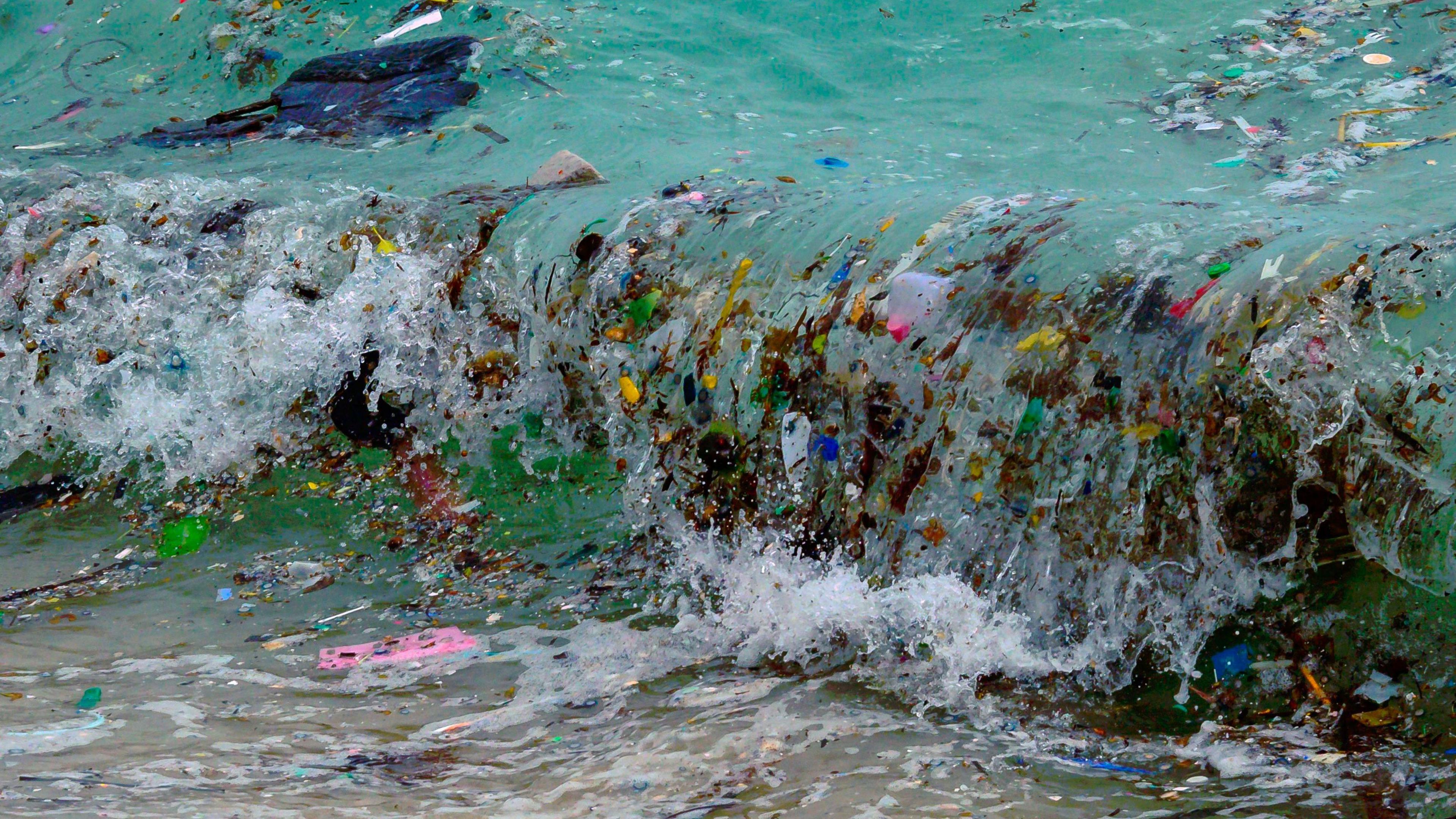
- Published27 October

- Published1 September
